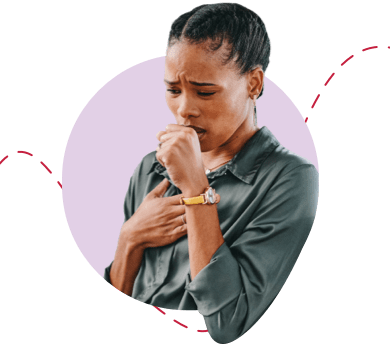The content of this website is intended for United States audiences only.
hospitalizations and 6,000–10,000 deaths in adults 65 years or older

hospitalizations and an estimated 100–300 deaths in children under 5 years old

The RSV is a common virus that affects the nose, throat, lungs, and airways. RSV is transmitted through droplets when someone with the virus coughs, sneezes, or kisses. It's also possible to contract RSV by touching a surface that has the virus on it, and then touching the eyes, nose, or mouth. A person with RSV is most likely to spread the virus, or be contagious, during the first week after infection. RSV usually has mild symptoms that are like the common cold: congested or runny nose, dry cough, fever, sore throat, sneezing, and/or headache. However, in some people, RSV can be more serious. In most parts of the US, RSV season usually begins in November and goes through March.

While anyone at any age is at risk of RSV, infants and older people have a higher risk of having a severe RSV infection and may need hospitalization.
If you are 18 years or older, have RSV, are not currently hospitalized, and are at high risk for severe RSV, you may be eligible for a study.

Currently, there are no FDA-approved oral medications for treatment available for RSV. To help prevent severe RSV, vaccines are available for older adults and pregnant people and monoclonal antibody products are available for infants and young children. But even after vaccination or immunization, adults, children, and infants can get RSV and may need treatment. Over-the-counter medications can help manage symptoms such as fever and discomfort. A doctor may recommend nasal saline drops or a suction tool to help clear up a stuffy nose. If an RSV infection becomes severe and requires hospitalization, oxygen or IV fluids may be needed for treatment. Mild RSV infections tend to clear up on their own in about 1 to 2 weeks without any treatment.

We're working to discover, develop and deliver innovative therapeutics for people with life-threatening diseases.
We're working to discover, develop and deliver innovative therapeutics for people with life-threatening diseases.